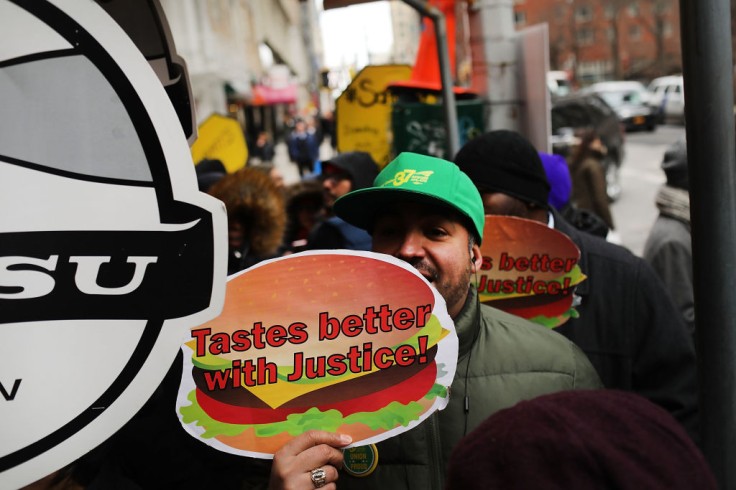
In a bid to improve the wages of fast food workers, a California law has encountered significant obstacles from the industry.
The law, signed by Governor Gavin Newsom last year, was intended to increase the minimum wage for fast food workers by establishing a 10-member council with the authority to raise the state's minimum wage to a maximum of $22 per hour for certain employees.
Considered a groundbreaking piece of employment legislation, the law has faced resistance from business groups, which gathered enough signatures to qualify for a referendum in 2024.
As a result, the law has been delayed, leaving workers in limbo.
Restoring the Industrial Welfare Commission
However, according to ABC, democratic lawmakers, who control the state Legislature, have come up with an alternative plan to address the issue of low fast food worker salaries.
Buried within California's operating budget, which exceeds $300 billion, is a provision to revive the dormant Industrial Welfare Commission.
This regulatory body, which has been inactive for the better part of this century, would possess powers similar to those of the delayed fast food council.
The Industrial Welfare Commission is responsible for regulating wages, working hours, and conditions in California across various industries.
Lawmakers are seeking to allocate $3 million in the state budget to bring the commission back to life, with a specific focus on industries where more than 10% of workers are below the federal poverty level, including fast food workers.
The commission would investigate wages and convene industry-specific wage boards to make recommendations.
Ultimately, it could issue orders pertaining to wages, working hours, and conditions.
Striving for Equitable Wages
Proponents of the revived commission argue that it is not aimed solely at the fast food industry but rather at improving conditions for all workers in California.
According to El Paso, a report from the United Ways of California reveals that over one-third of the state's residents do not earn enough to meet their basic needs.
State Senator Maria Elena Durazo, a Democrat from Los Angeles and chair of the budget subcommittee responsible for labor issues, emphasizes the commission's role in addressing the broader problem of inadequate wages.
Durazo asserts that the commission should always be vigilant about worker wages and take action when necessary.
She refutes claims that the funding allocation is a deliberate attempt to circumvent the resistance faced by the fast food council law.
Durazo argues that the commission's revival is an opportunity for them to address the larger issue of income inequality and poverty affecting low-wage workers across various industries.
Industry Concerns and Union Support
Unsurprisingly, business groups have voiced opposition to the revival of the Industrial Welfare Commission.
According to The Washington Post, The California Chamber of Commerce, California Retailers' Association, California Manufacturers and Technology Association, California Restaurant Association, and California Building Industry Association have all expressed their disapproval.
Their primary concern lies in the limitations placed on the commission, which prevent it from issuing standards that offer less protection than existing state law.
They argue that this limitation could create confusion. On the other hand, the Service Employees International Union (SEIU), which sponsored the fast food law, supports the funding allocation for the commission.
Although SEIU did not directly comment on whether the funding aims to achieve the goals of the fast food law, the union views it as a step toward addressing the inequality and poverty experienced by low-wage workers.
With the new fiscal year fast approaching, Governor Newsom and legislative leaders have reached an agreement on the operating budget, which includes the restoration of funding for the Industrial Welfare Commission.
While the revived commission could have implications beyond the fast food industry, its fate ultimately rests on the effectiveness of its efforts to address wage disparities and improve working conditions for California workers.
As the battle between industry groups and lawmakers continues, the fate of fast food worker salaries remains uncertain.
The upcoming referendum in 2024 will play a crucial role in determining whether the delayed fast food council law will be upheld or overturned.
Until then, the revived Industrial Welfare Commission could become a pivotal force in shaping the wage landscape for not only fast food workers but also employees across various sectors throughout the state of California.